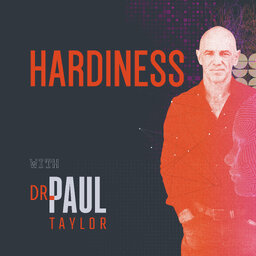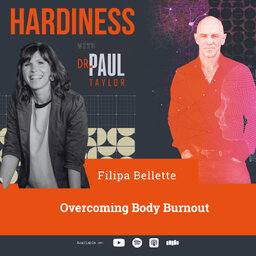Mojo Monday: How To Stop Emotions and Thoughts from Taking Over With Carly Taylor
This week, Carly talks about a strategy based on ACT and Viktor Frankl's Logo Therapy to help manage unpleasant thoughts and emotions so they don't gain power and dictate what we do.
Carly Taylor is a Mental Fitness Coach passionate about helping people tame their mind so they can live a rich, meaningful and fulfilled life. She is trained in ACT (Acceptance and Commitment Therapy), Japanese Psychology, is an IIN qualified Health Coach and is currently undergoing a Maters of Counselling. For more information, go to carlytaylorcoaching.com.au or follow her on Instagram: carly_taylor_coaching.
 Hardiness with Dr Paul Taylor
Hardiness with Dr Paul Taylor


